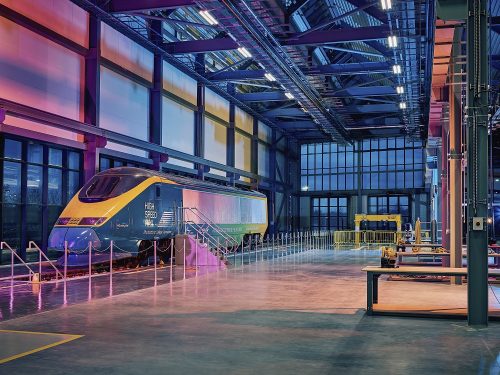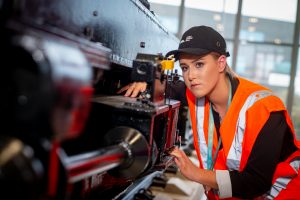Future-proofing rail industry’s success with employer-led college

The National College for High Speed Rail (NCHSR) in Yorkshire is looking to put the industry’s workforce of the future on the fast-track to success.
The pioneering employer-led college, which has one of its two campuses in Doncaster, was opened in 2017 to help British students develop world class skills in engineering and for the delivery of major infrastructure programmes such as HS2.
Martin Owen, commercial finance director at the NCHSR, said that things are moving in the right direction. He added: “If anything, we’re seeing a growing appetite from businesses looking to explore alternative progression pathways into industry.”
The college’s courses have been designed with the input of employers and he reels off a list of global rail and engineering groups the college is working with, including Hitachi, Bombardier, Volker and DB Cargo.
However, there are challenges, including engaging with more SMEs in the supply chain to show them the opportunities available to them.
Owen said: “I think it’s fair to say that many of the training offers are not always fully understood. It’s incumbent on providers like us to explain the added value that we are bringing, and exactly what benefits are on offer.
“At the college, all of our learner pathways have been designed with the input of employers. We have a base in Doncaster because of its strong railway heritage and its mixture of national and global players in the rail and engineering sectors.
“With high calibre learners we are also in the advantageous position of being able to offer short-term placements for employers of all sizes, so that they can work with college learners, seeing them up close, before committing to longer-term training and apprenticeship schemes.”
The perception that some employers, especially SMEs have, about apprenticeships is another challenge, as Owen explains.
“Apprenticeships aren’t always seen as an effective workforce solution, for example many companies seek experienced, pre-trained new hires without considering the long term value, benefits, and loyalty that working with apprentices can bring.
“The apprenticeship levy can seem daunting especially for those who fall below the £3m threshold for paying it, even though there are opportunities for those businesses to receive levy funds from their supply chain partners – something we can help to explain and facilitate.
“All of this is understandable but there are a large number of SME’s in the supply chain that are missing out on significant opportunities that come with taking on apprentices – where they can have individuals that grow with their business, bring new diversity to the company and can contribute to the long-term business cycle.”
The college, which also has a campus in Birmingham, looks to provide the training for the high-tech engineers, managers, designers, apprentices and advanced manufacturing talent needed for the UK’s high speed rail industry, as well as other major infrastructure schemes.

She said: “The National College has opened my eyes to the different opportunities and different roles within rail because it’s so broad.
“There are so many different pathways, options and salaries on offer. It’s not one dimensional at all and there’s definitely something for everyone.”







